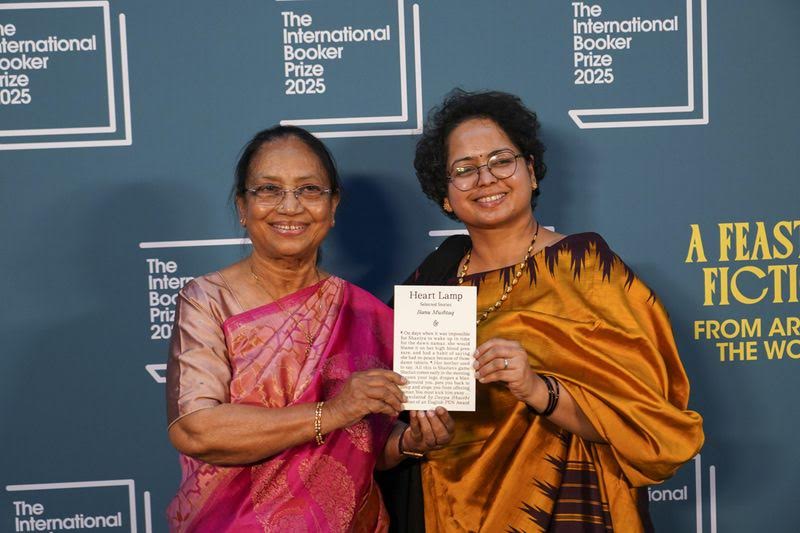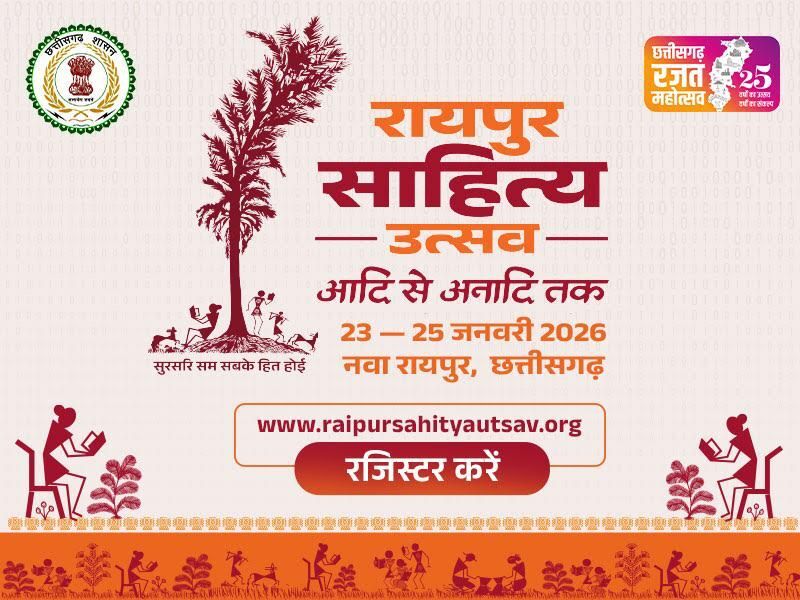Bengaluru : In a recent interview on the YouTube channel The Book Haven, Kannada author Banu Mushtaq and translator Deepa Bhasthi discussed their International Booker Prize-winning short story collection, Heart Lamp, a poignant exploration of the lives of Muslim and Dalit women in southern India. The conversation, moderated by literary critic Dr. Priya Sharma, delved into the themes of the book, the challenges of translation, and the authors’ perspectives on societal issues, including the contentious topic of Muslim fanaticism. The interview, available at [YouTube link], offers a rare glimpse into the creative and ideological synergy between Mushtaq and Bhasthi, whose collaboration has brought Kannada literature to the global stage. This article draws from their discussion, as well as insights from a feature in The Hindu [], to explore their thoughts on Muslim fanaticism, the power of storytelling, and the significance of their historic win.
Heart Lamp, a collection of 12 short stories, marks a milestone in Indian regional literature as the first Kannada work and the first short story collection to win the International Booker Prize. Written by Banu Mushtaq and translated into English by Deepa Bhasthi, the book captures the everyday struggles, resilience, and quiet rebellion of women navigating patriarchal, casteist, and religiously oppressive structures in southern India. Mushtaq, a lawyer, activist, and writer from Karnataka, has spent decades crafting stories that challenge social injustices, particularly those faced by Muslim and Dalit women. Bhasthi, a Kodagu-based translator and writer, has skillfully rendered these narratives into English, preserving their emotional depth and cultural specificity.
During the interview, Dr. Sharma posed a pointed question about how Heart Lamp addresses the perception of Muslim fanaticism, a topic often fraught with stereotypes and political baggage. Mushtaq responded with characteristic clarity, emphasizing that her stories aim to humanize rather than demonize. “The term ‘fanaticism’ is often weaponized to paint entire communities as threats,” she said. “In Heart Lamp, I wanted to show Muslim women not as caricatures but as individuals with dreams, fears, and agency, living within and resisting oppressive systems.” She cited the story “Shadows of Jasmine,” where a young Muslim woman, Ayesha, defies her conservative family’s expectations to pursue education, only to face accusations of “rebellion” that echo broader societal labels of fanaticism. Mushtaq argued that such labels often obscure the real issue: the lack of freedom for women to make choices without fear of judgment or violence.
Mushtaq’s perspective is rooted in her decades-long engagement with progressive literary circles in Karnataka, where she began writing in the 1970s and 80s. Her activism as a lawyer defending women’s rights informs her storytelling, which blends empathy with critique. She acknowledged that religious orthodoxy, including within Muslim communities, can stifle individual freedoms, but she was quick to contextualize it. “Orthodoxy is not unique to any one religion,” she noted. “It’s a product of patriarchal control, whether it’s Hindu, Muslim, or any other community. My stories don’t shy away from showing the harm of rigid beliefs, but they also refuse to let those beliefs define the people who live under them.”
Deepa Bhasthi, who translated Heart Lamp from Kannada to English, elaborated on the challenges of conveying these nuanced portrayals to a global audience. “The word ‘fanatic’ carries heavy connotations in English, often tied to terrorism or extremism,” she explained. “In Kannada, the language Banu uses is more layered, often blending irony and compassion. My job was to carry that tone across without letting the stories feel like they’re pandering to Western stereotypes about Muslim communities.” Bhasthi’s translation has been lauded for its fidelity to the original text while making it accessible to readers unfamiliar with the cultural and linguistic intricacies of Karnataka. She cited her work on stories like “The Weight of a Name,” where a Muslim woman’s choice to change her name to escape stigma reflects both personal courage and societal prejudice.
The interview also touched on the broader socio-political context of their work. Mushtaq addressed the rise of communal tensions in India, particularly the targeting of Muslim communities through divisive narratives. “When people talk about ‘Muslim fanatics,’ they often ignore the fanaticism of majoritarian politics,” she said, her voice steady but impassioned. “My stories don’t preach, but they ask readers to question who gets to define normalcy and who gets labeled as ‘other.’” This perspective aligns with posts on X, where users like
@whineandchill praised Mushtaq’s “clarity of thought” and commitment to feminist ideals, noting her refusal to shy away from difficult truths.
Bhasthi added that translating Heart Lamp required navigating not just linguistic but also ideological challenges. “In some stories, Banu critiques religious conservatism head-on, but she does it through the eyes of her characters—women who are daughters, mothers, sisters,” she said. “My role was to ensure their voices felt authentic, not like they were being filtered through a lens of external judgment.” Bhasthi’s background as a translator of other Kannada luminaries, such as Kota Shivarama Karanth, equipped her to handle the delicate balance of staying true to Mushtaq’s intent while making the stories resonate internationally.
The discussion also highlighted the significance of their Booker win for Kannada literature. Mushtaq expressed pride in bringing a regional language to global attention, noting that Kannada literature has long been overshadowed by works in English or Hindi. “This award is for every writer who tells stories in their mother tongue,” she said. Bhasthi echoed this sentiment, emphasizing the importance of translation in bridging cultural divides. “Kannada is a language of incredible richness, but it’s rarely heard outside Karnataka,” she said. “Translating Heart Lamp was about giving these women’s stories a passport to the world.
”The interview wasn’t without lighter moments. Mushtaq shared an anecdote about a reader who mistook one of her stories for a real-life account, underscoring the vivid realism of her characters. Bhasthi laughed as she recounted the painstaking process of finding English equivalents for Kannada idioms, like translating “a heart heavy as a monsoon cloud” without losing its poetic weight. These moments revealed the deep camaraderie between the two women, whose collaboration has been as much a friendship as a professional partnership.
Heart Lamp’s stories, as discussed in the interview and detailed in The Hindu [], span Mushtaq’s career from 1990 to 2023, showcasing her evolution as a writer. From the quiet defiance of a widow in “The Last Lantern” to the intergenerational conflict in “Daughters of the Moon,” the collection weaves a tapestry of resilience and resistance. Mushtaq and Bhasthi’s work challenges readers to confront uncomfortable truths about caste, religion, and gender while celebrating the humanity of those often marginalized.
As the interview drew to a close, Dr. Sharma asked about their hopes for Heart Lamp’s impact. Mushtaq’s response was both humble and resolute: “I want readers to see these women as they are—flawed, strong, human. If even one person questions the labels we put on each other, whether it’s ‘fanatic’ or ‘rebel,’ then these stories have done their job.” Bhasthi added, “I hope it inspires more translations, more voices from the margins to be heard.”
Heart Lamp is more than a literary achievement; it’s a testament to the power of storytelling to challenge stereotypes and amplify silenced voices. Mushtaq and Bhasthi’s collaboration has not only elevated Kannada literature but also sparked a vital conversation about identity, resistance, and the human cost of fanaticism in all its forms. Their Booker win is a beacon for regional literature, proving that stories from the heart of Karnataka can resonate with the world.





